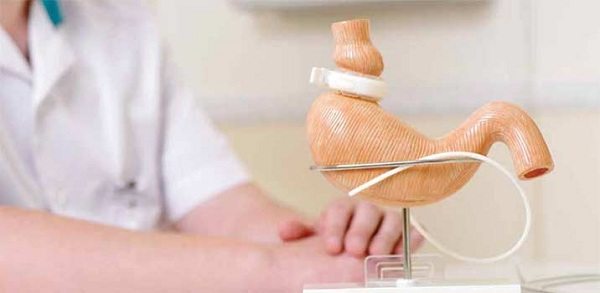The Intermountain Healthcare Financial Assistance is available for residents who are part of the communities the organization serves. It is especially for those who are unable to pay, just like what the financial assistance meaning is. The financial assistance is offered to those who are uninsured and insured according to income and other personal circumstances. To apply for the assistance, you will need to complete the Intermountain Healthcare Financial Assistance application first. The applications forms can be accessed securely from the organization’s official website (intermountainhealthcare.org), which is available in English and Spanish.
You can either submit the financial assistance application form online or print the form and fill it out to be handed along with the other appropriate documentations to the Eligibility Counselor. The paper form to apply for the program can also be accessed through the company’s official website. You are also free to mail the financial assistance form you’ve completed to the services where the services wither were or will be offered. If you wish to apply in person, there are two ways you can do:
- Visit the local clinic or hospital where you receive the services; or,
- Visit the Intermountain Financial Services Inc.’s Financial Assistance Office. The location is:
- Intermountain Healthcare
- 4646 Lake Park Boulevard
- Salt Lake City, UT 84130
How to Qualify for the Program
Those who are uninsured will benefit from a discount offered for some services. Meanwhile, if you’re a qualifying patient, financial grant is available. Some patients may also receive provision if they experience any catastrophic healthcare events. The cost of care fitting with your ability to pay will be determined after you provide imperative information related to household size, expenses, household income, and any other personal circumstances.
Hospitals offering the Intermountain Healthcare Financial Assistance use a sliding scale. This is a tool that considers your family size and family income, amount of liquid assets available, and sum of your medical bills. If your family income is less than 150 percent of the Federal Poverty Guidelines, then you may be determined qualified for full assistance, minus a small amount of co-pay per episode of health care. This scale will extend up to 500 percent of the guidelines. There’s also a model to estimate the ability to pay, attempting to determine what portion of your individual income that may be available to pay your medical debt. In short, if the sliding scale increases, there will be more of your income that is available potentially to pay for the medical services you receive.
For those who have catastrophic medical bills may also qualify for the assistance Intermountain Healthcare offers. Currently, Intermountain hospitals describe catastrophic assistance as conditions or situations in which all medical bills are more than 35 percent of the family’s income. Those bills are not only Intermountain medical bills.
Note that Intermountain Healthcare will need to review your specific situation as well. This process is to help determine if any additional assistance is necessary and should be provided. There are some factors that may determine an individual as a qualified patient, referred to as extenuating circumstances. Those include recent unemployment, divorce, death of a family member, separation, as well as other certain life events. Such circumstances usually provide a basis to provide additional assistance or waive either all or a portion of the financial assistance co-payment required. Please also note that the assistance is only offered by Intermountain Healthcare to those who are residents of Utah and specific areas of Idaho. Residence refers to those who live in those areas for at least three months, with extenuating circumstances can also be considered.
Other Important Information You Need to Know
- About partial financial assistance.
You may qualify only for partial assistance. Again, remember that your personal income and other relevant circumstances are used by Intermountain to determine your level of assistance. If you receive partial assistance, the rest of the balance billed to you to pay will be your responsibility. There are some payment plans Intermountain offers, including the interest-free 90-day payment plan. You can contact your hospital for more details.
- Applying for financial assistance after receiving the bill.
Even though it’s strongly urged for you to apply for the assistance before you receive health care, you can still do it even if the bill has already been sent to collections.
- When you’ll know about the assistance you’ll receive.
The amount of assistance is to be determined as soon as possible. Typically, you will receive confirmation that Intermountain Healthcare is working on your application, about within 10 days of application submission and documentation. Regardless of your ability to pay, you will receive available care, both medically required and generally, in a timely manner.
Other Sources of Funding
Bear in mind that no single organization can always meet the needs of patients who cannot pay. If you need financial assistance, utilize all resources available for which you are eligible. This will also to make sure that the resources Intermountain Healthcare has will be made available to those who aren’t qualified for other financial help. There are a number of both private and public programs available for those who aren’t able to pay for their medical treatment.
- State Medicaid programs.
This refers to the health insurance programs administered by state, providing state and federal funds to those qualifying patients to help them pay for their medical care. The funds are available typically for those with low incomes, as well as those with disabilities.
- Additional resources.
There are some programs you can also try to get financial assistance for medical services, such as Medicare, Children’s Health Insurance Program, Utah’s Primary Care Network, and Crime Victims Reparations.
- Community clinics.
Many clinics in Utah offer primary health care services to those qualifying patients on a charitable or sliding free basis and ideal for non-emergency treatment.
- COBRA benefits.
For you who are uninsured but once have had received health insurance coverage from your previous employer, obtaining a coverage for you and your family may still be possible within a limited period of time. You can do this through COBRA (Consolidated Omnibus Budget Reconciliation Act).
The Intermountain Healthcare Financial Assistance program surely will help you pay for your medical bills, either in full or partially. If you’re not qualified for the program, there are still other alternatives you can utilize.
Realated Articles You might Like:
- Financial Assistance for Caregivers of Disabled
- Financial Assistance for Lung Cancer Patients
- Financial Aid for Deafness and Hearing Loss
- IHC Financial Assistance
- Financial Assistance for Children With ADHD
- Financial Assistance for Bipolar Disorder
- Financial Assistance for Cataract Surgery
References:
- How to Apply Intermountain Healthcare Financial Assistance
- Intermountain Healthcare FAQ’s
- Intermountain Healthcare Financial Assistance – Other Resources
- Image: big-d.com




